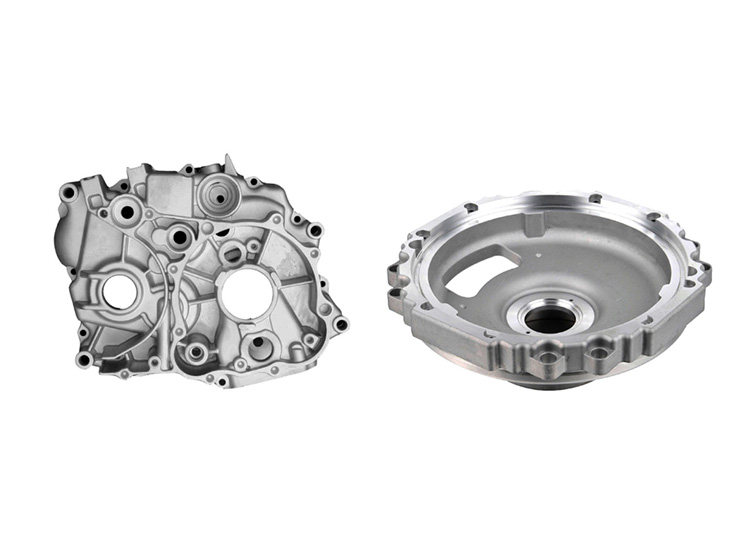The 4-Minute Rule for Stahl Specialty Company
The 4-Minute Rule for Stahl Specialty Company
Blog Article
Our Stahl Specialty Company Diaries
Table of Contents4 Easy Facts About Stahl Specialty Company ExplainedGetting The Stahl Specialty Company To WorkOur Stahl Specialty Company IdeasNot known Factual Statements About Stahl Specialty Company The Stahl Specialty Company Statements
The subtle distinction exists in the chemical content. Chemical Comparison of Cast Aluminum Alloys Silicon promotes castability by reducing the alloy's melting temperature level and boosting fluidness during casting. It plays a critical function in enabling intricate molds to be loaded precisely. Additionally, silicon contributes to the alloy's toughness and use resistance, making it important in applications where resilience is critical, such as auto components and engine parts.It also boosts the machinability of the alloy, making it less complicated to refine into finished products. In this way, iron adds to the general workability of aluminum alloys.
Manganese contributes to the strength of aluminum alloys and enhances workability. Magnesium is a light-weight element that gives strength and influence resistance to light weight aluminum alloys.
It allows the production of lightweight elements with exceptional mechanical buildings. Zinc improves the castability of aluminum alloys and helps manage the solidification process throughout casting. It boosts the alloy's strength and hardness. It is often discovered in applications where intricate forms and great information are needed, such as decorative castings and certain automotive components.
Stahl Specialty Company for Dummies
Due to the fact that aluminum-silicon alloys have excellent spreading residential or commercial properties, high gas buildings, straightforward procedures, and exceptional deterioration resistance, aluminum-silicon alloys are most generally utilized in the die-casting industry at home and abroad. At the very same time, aluminum-silicon alloys are likewise relatively early and commonly recognized alloys developed and used in die-casting. After continual study and improvement, a lot of the existing global mainstream aluminum-silicon alloys have actually been settled and are absolutely nothing more than A356, A360, A380, ADC12, B390, and A413.
The primary thermal conductivity, tensile toughness, yield stamina, and prolongation vary. Select suitable resources according to the efficiency of the target item created. Amongst the above alloys, A356 has the greatest thermal conductivity, and A380 and ADC12 have the most affordable. The tensile limitation is the contrary. A360 has the finest yield toughness and the greatest elongation rate.

Excitement About Stahl Specialty Company
In accuracy spreading, 6063 is appropriate for applications where intricate geometries and top quality surface finishes are paramount. Instances include telecommunication rooms, where the alloy's remarkable formability enables smooth and visually pleasing layouts while preserving structural integrity. In the Lights Solutions sector, precision-cast 6063 parts create elegant and effective lights fixtures that call for intricate shapes and good thermal performance.
(https://www.pearltrees.com/stahlspecialc#item698040152)
The A360 displays remarkable elongation, making it optimal for facility and thin-walled elements. In precision spreading applications, A360 is fit for industries such as Consumer Electronic Devices, Telecommunication, and Power Devices.

In accuracy casting, aluminum 413 beams in the Consumer Electronics and Power Equipment markets. This alloy's remarkable deterioration resistance makes it an outstanding option for exterior applications, making certain durable, durable items in the stated industries.
The Stahl Specialty Company PDFs
Once you have actually decided that the aluminum die casting process is ideal for your job, a crucial following action is choosing on one of the most proper alloy. The aluminum alloy you select will substantially influence both the spreading process and the residential properties of the end product. Since of this, you must make your choice meticulously and take an informed technique.
Identifying one of the most appropriate aluminum alloy for your application will suggest weighing a large array of features. These relative alloy qualities follow the North American Die Spreading Association's standards, and we've split them into two groups. Casting Foundry. The very first classification addresses alloy characteristics that impact the manufacturing process. The 2nd covers features impacting the properties of the end product.
The alloy you pick for die spreading straight influences numerous elements of the spreading process, like exactly how very easy the alloy is to deal with and if it is prone to casting defects. Warm cracking, likewise called solidification cracking, is a common die casting flaw for aluminum alloys that can result in interior or surface-level rips or splits.
More About Stahl Specialty Company
Certain light weight aluminum alloys are extra prone to hot fracturing than others, and your choice must consider this. An additional common flaw discovered in the die spreading of aluminum is pass away soldering, which is when the cast stays with the die walls and makes ejection challenging. It can damage both the cast and the die, so you should search for additional resources alloys with high anti-soldering properties.
Deterioration resistance, which is already a notable characteristic of aluminum, can differ significantly from alloy to alloy and is a vital particular to take into consideration depending upon the environmental problems your product will certainly be exposed to. Put on resistance is an additional property commonly sought in aluminum products and can set apart some alloys.
Report this page